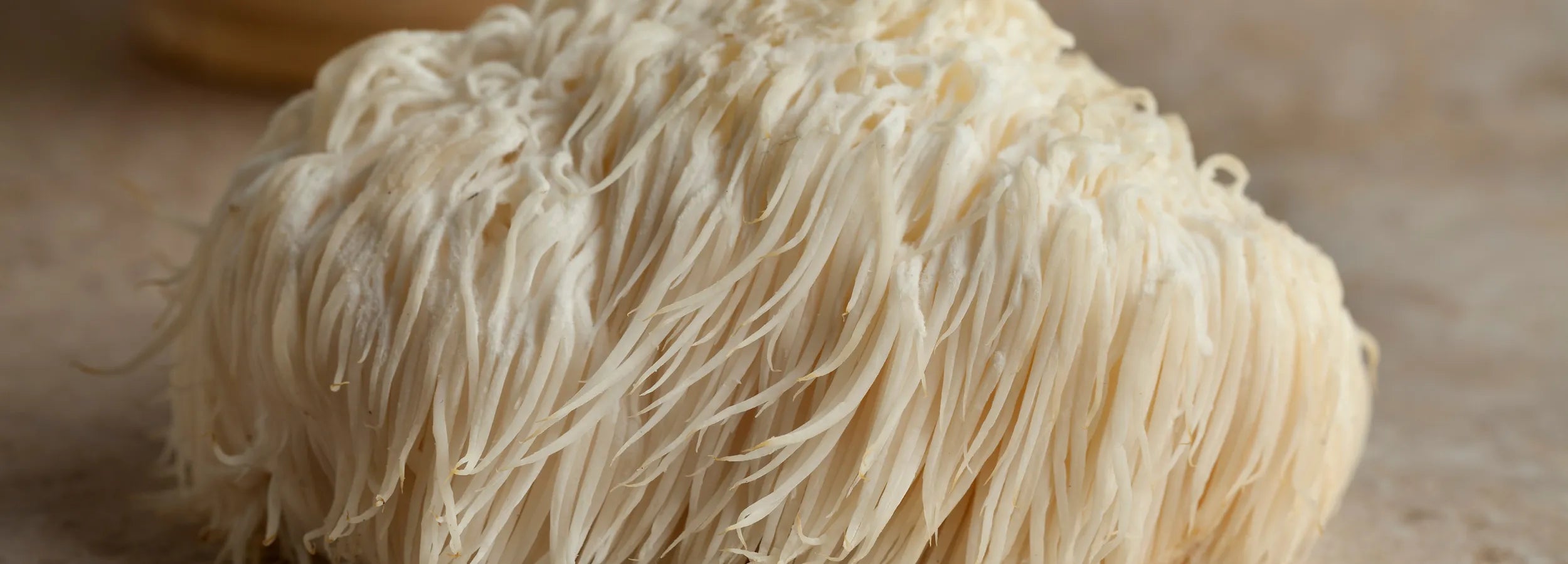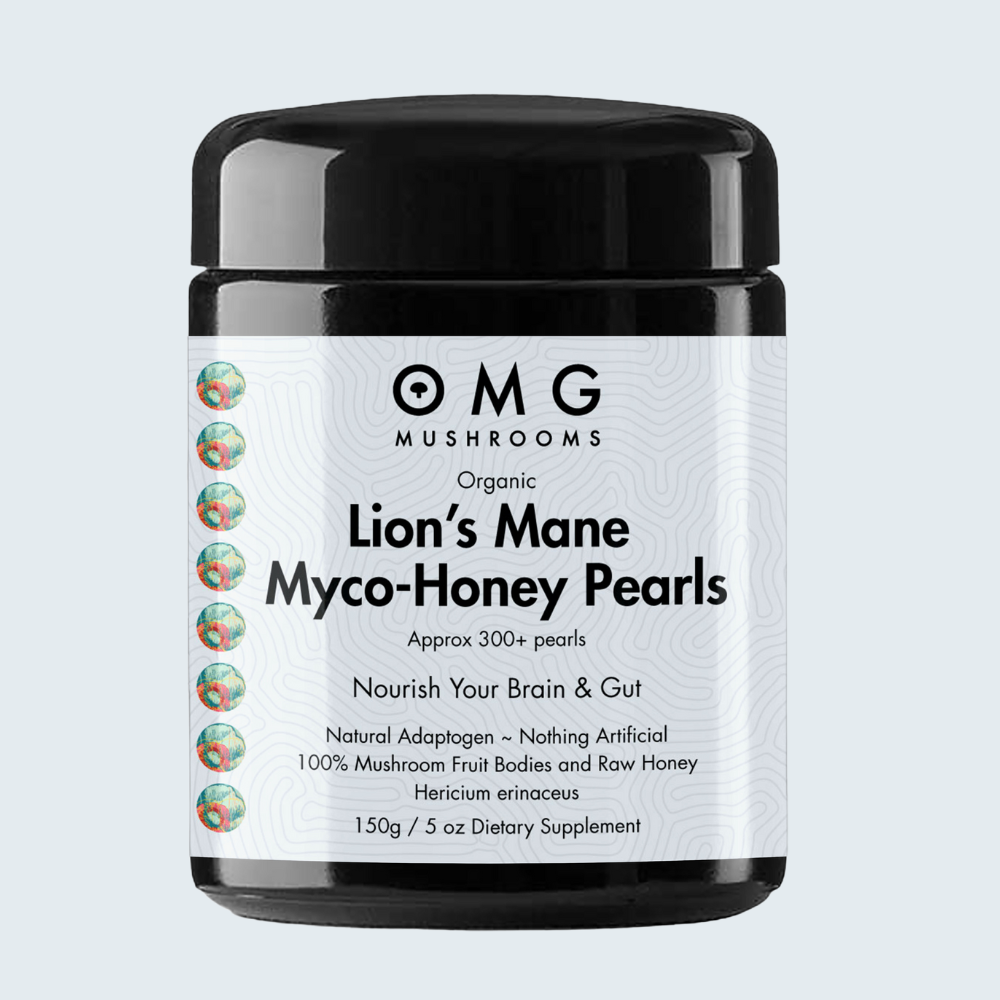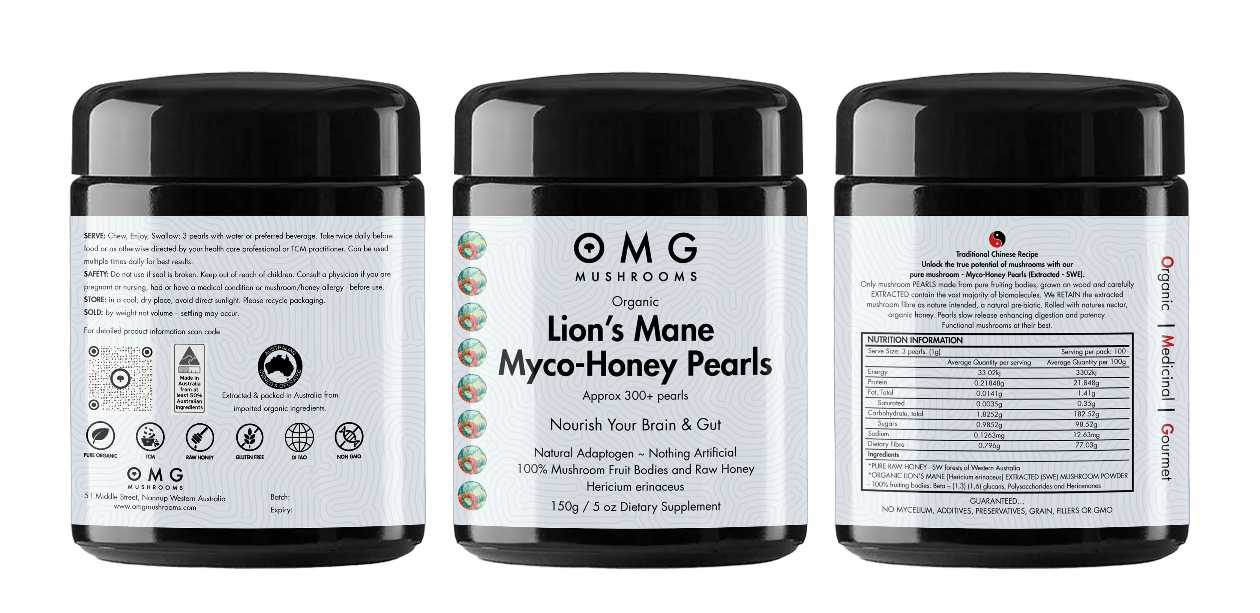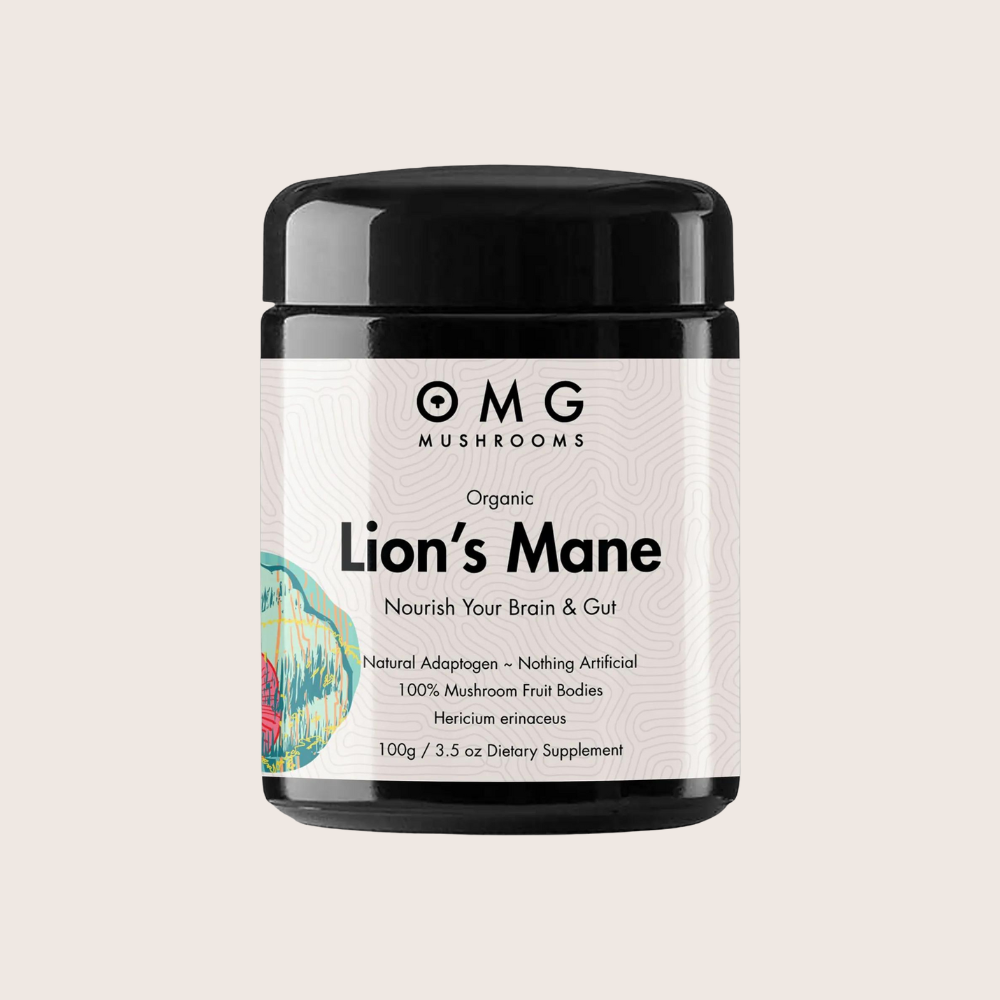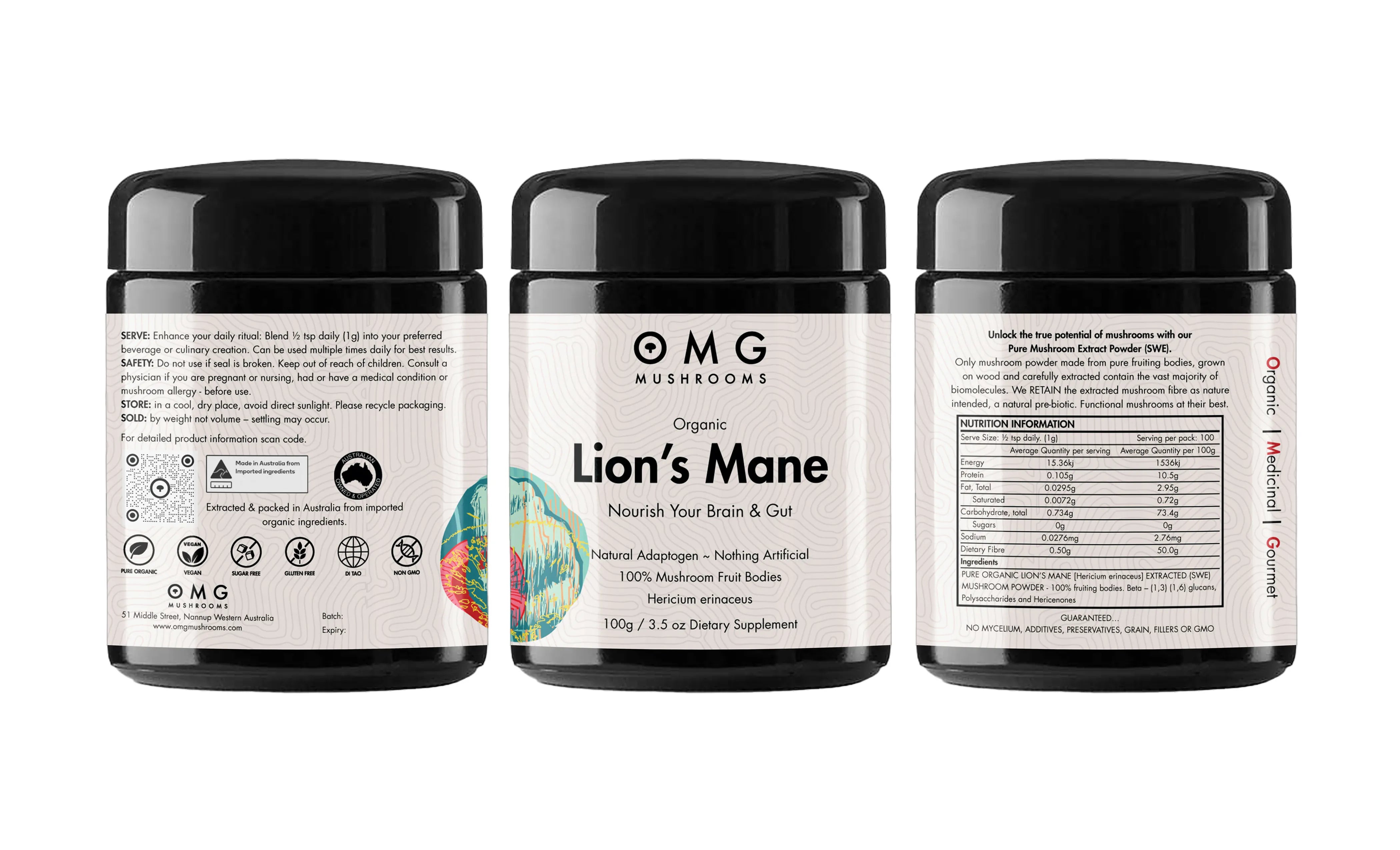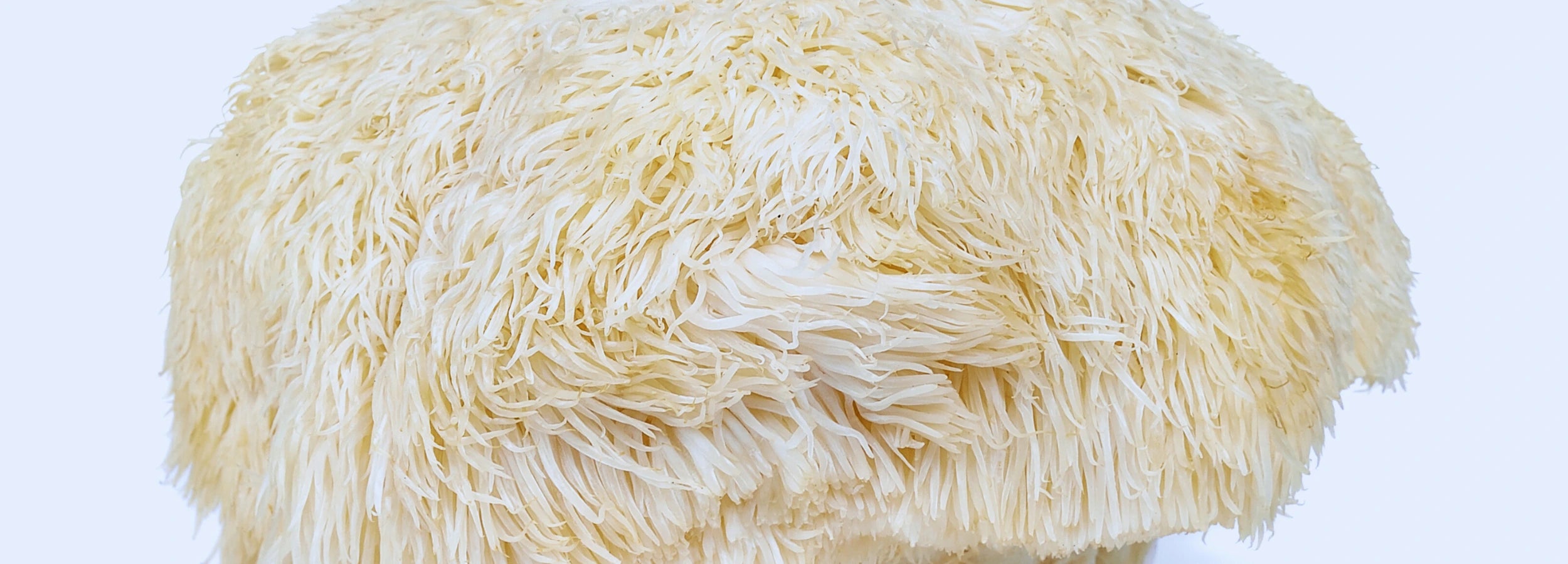Lions Mane - The Mushroom of the Mind
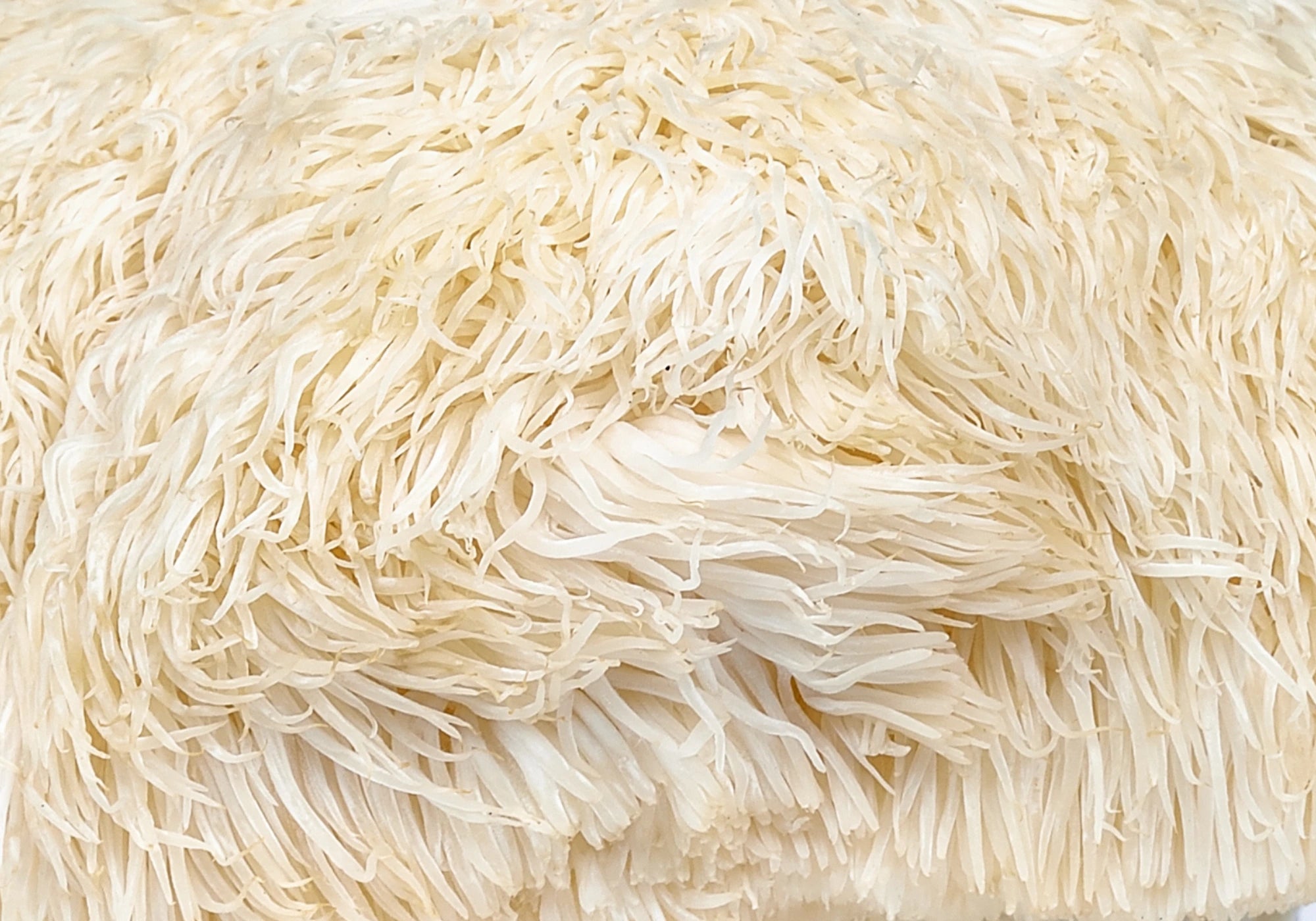
HERICIUM FUNGUS RECEIVES GLOBAL RECOGNITION
Hericium, also known as Lion's Mane, boasts a rich profile of bioactive components like beta-glucans, hericenones, and natural GABA, actively contributing to gut microbiota health and neurogenesis. Its popularity has surged, backed by ongoing scientific studies revealing its medicinal properties, including neuroprotection, gut health support, and cognitive enhancement. This versatile mushroom, subject to continuous research, has shown promising results in addressing cognitive impairment, gastric issues, and immune modulation.
In a 16-week double-blind study on humans with mild cognitive impairment, Hericium demonstrated improved cognitive function. Its anti-inflammatory and prebiotic effects on the gastrointestinal level, along with inhibitory action against Helicobacter pylori, make it a multifaceted healer. Used traditionally for millennia, it finds its roots in holistic practices like aiding concentration in meditation and combating digestive problems in Traditional Chinese Medicine.
With exciting potential and a rich history, Lion's Mane has become a globally recognised supplement for its diverse health benefits. Its holistic usage, from clearing the mind to enhancing cognition, resonates with ancient practices and aligns with contemporary health research. Lion's Mane is not just a mushroom; it's a symbol of centuries-old wisdom meeting cutting-edge health science.
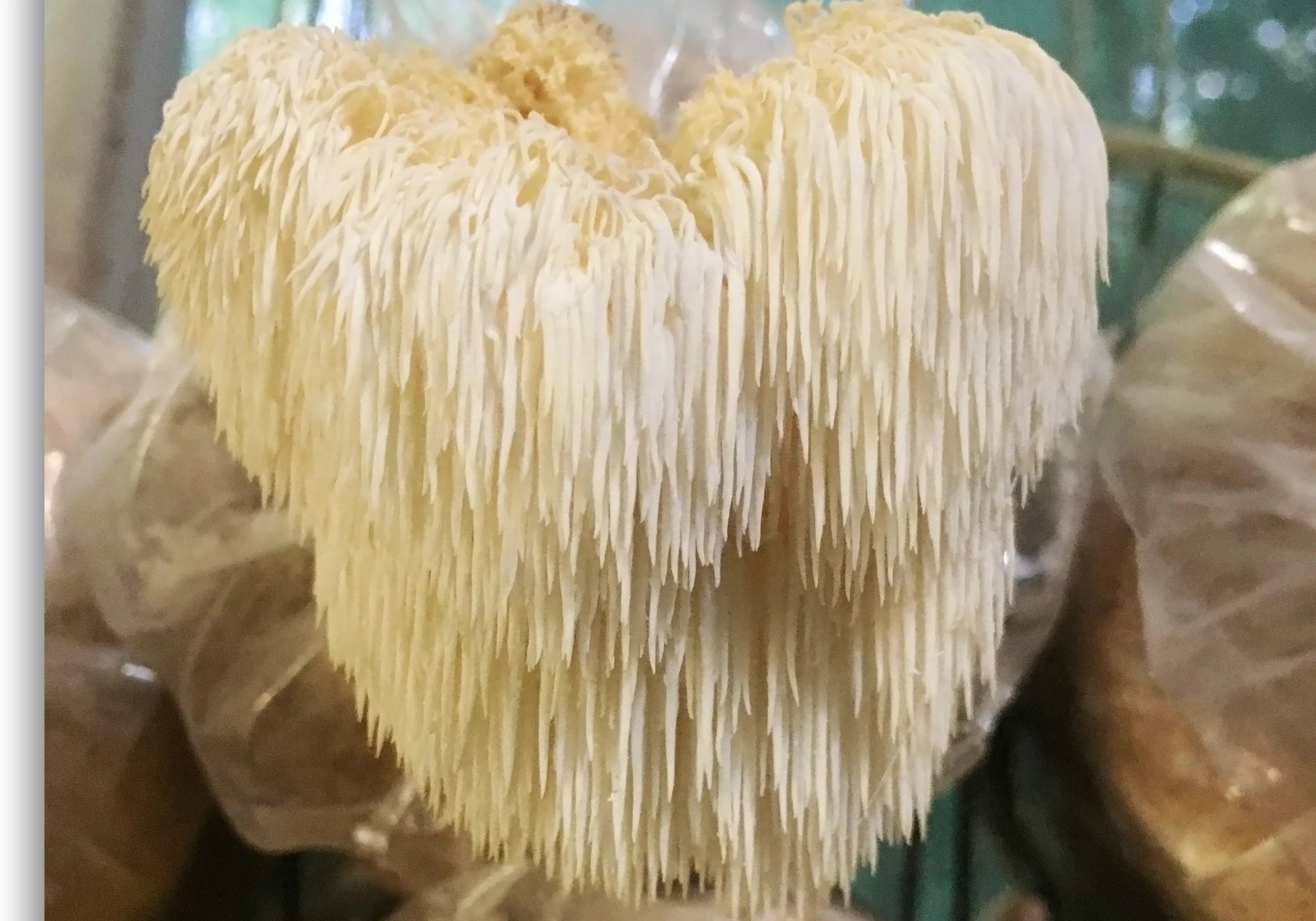
THERAPEUTIC USES OF LION’S MANE
Lion's Mane, an exceptional medicinal mushroom, has garnered increased attention for its health-promoting properties in the past two decades, showcasing exciting potential. With a rich history dating back thousands of years, it finds roots in holistic practices, including its use by Buddhist monks for concentration during meditation. Traditional Chinese Medicine (TCM) has also harnessed its benefits for addressing digestive issues.
Gastrointestinal System:
- Prebiotic Wonder: Lion's Mane, with β-glucans and polysaccharides, acts as a prebiotic, fostering probiotic bacteria and enhancing microbiota balance.
- Gut Health Guardian: Its anti-inflammatory properties and mucosa regeneration benefit various inflammatory intestinal conditions.
- Antibacterial Ally: Lion's Mane inhibits Helicobacter pylori, offering protection against harmful bacteria.
- Immune Harmony: Its immunomodulatory prowess recommends it for leaky gut syndrome.
Nervous System:
- Neuroenhancer: High in hericenones, Lion's Mane stimulates Nerve Growth Factor, enhancing memory, concentration, and attention.
- Versatile Support: Acts adaptogenically against stress and depression, aids in Alzheimer's and Parkinson's prevention and cognitive improvement.
- Antioxidant Defender: Potent antioxidant properties prevent nerve cell degeneration.
PRODUCTS WITH LION’S MANE
FUN FACT
Hericium erinaceus, commonly known as Lion's Mane mushroom, not only captivates with its potential health benefits but also showcases a fascinating natural phenomenon. The mushroom's appearance resembles cascading white icicles or flowing water, earning it the nickname "pom-pom blanc" in French. This unique visual characteristic adds an element of wonder to the world of mycology enthusiasts and nature lovers alike. Lion’s Mane has been traditionally used for thousands of years in holistic practices. Buddhist monks used to take an infusion of this medicinal mushroom to aid concentration during meditation, as they attributed to it the power to “clear the mind and enhance cognition."
MYCOLOGICAL NOTES
Hericium erinaceus presents a distinctive morphology, typically featuring a rounded fruiting body characterised by spines that radiate from a common point, resembling the appearance of a cascading mop head. Initially white or pale yellow-brown, the color deepens with maturation. Attached to the substrate by a brief, broad stipe (stem), these fruiting bodies are annual but may reappear in the same location on a tree over multiple years. While the entire fruiting body can attain a diameter of up to 30 cm (in the wild), a more common size falls within the range of 15-20 cm. The spines of Hericium erinaceus possess pointed tips. Notably, commercial cultivation of Lion's Mane involves the use of hardwood sawdust with supplementation.
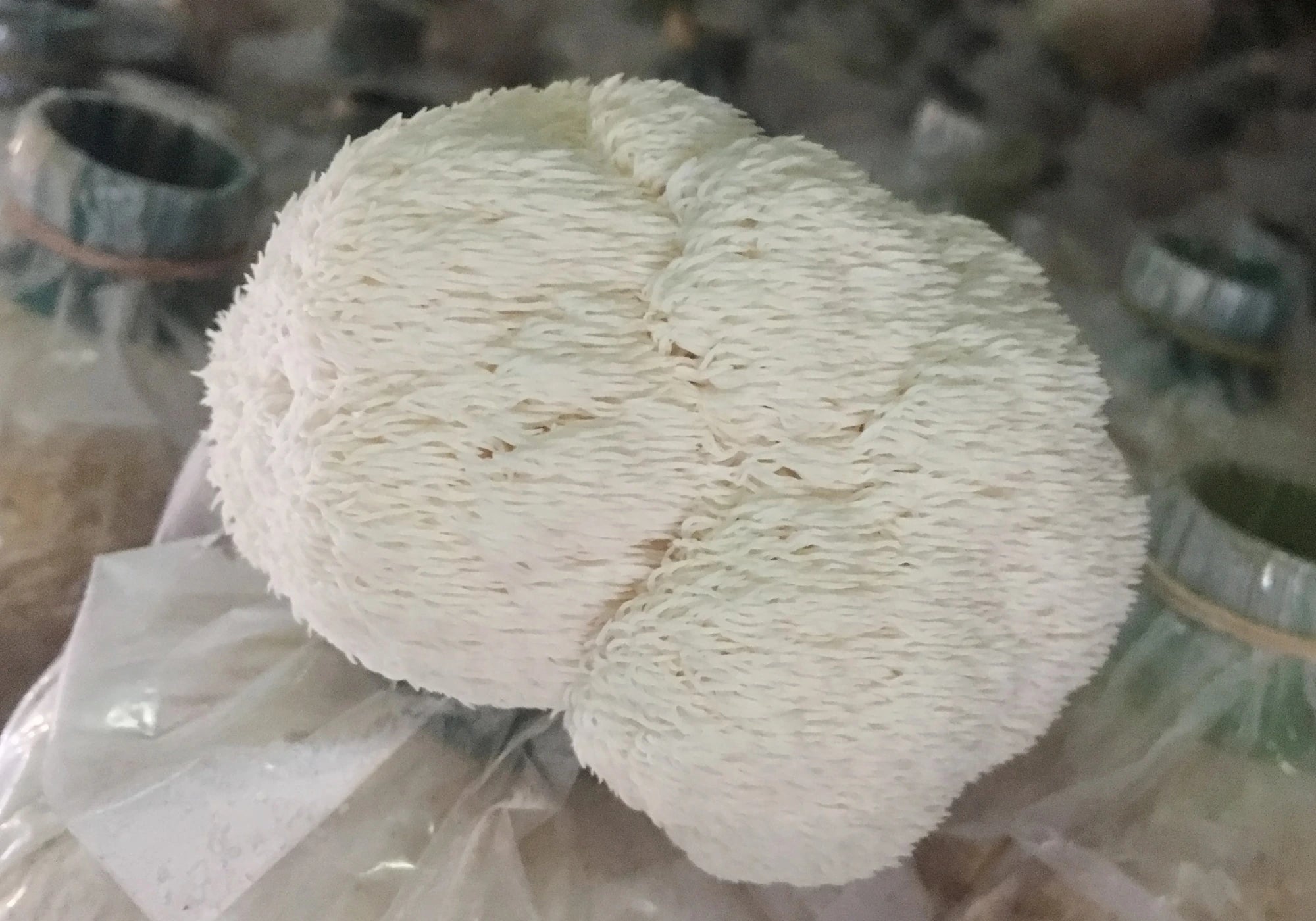
LION’S MANE CULTIVATION
Cultivation of Lion's Mane mushrooms has a rich history, with a significant presence in traditional Chinese practices. Over the years, this cultivation has evolved both industrially and on a smaller scale. The process often involves utilizing dead tree trunks or sterilised sawdust as substrates. Various cultivation kits, inclusive of culture mediums, spores, and/or mycelia, are also available for enthusiasts. Optimal growth conditions include shaded areas without direct sunlight, temperatures ranging between 15 and 20 °C, and high humidity levels, with regular watering. China has played a prominent role in Lion's Mane cultivation, being a key producer with a substantial cultivation volume. This enduring tradition has contributed to the availability of Lion's Mane mushrooms for various purposes, including medicinal applications and culinary delights.
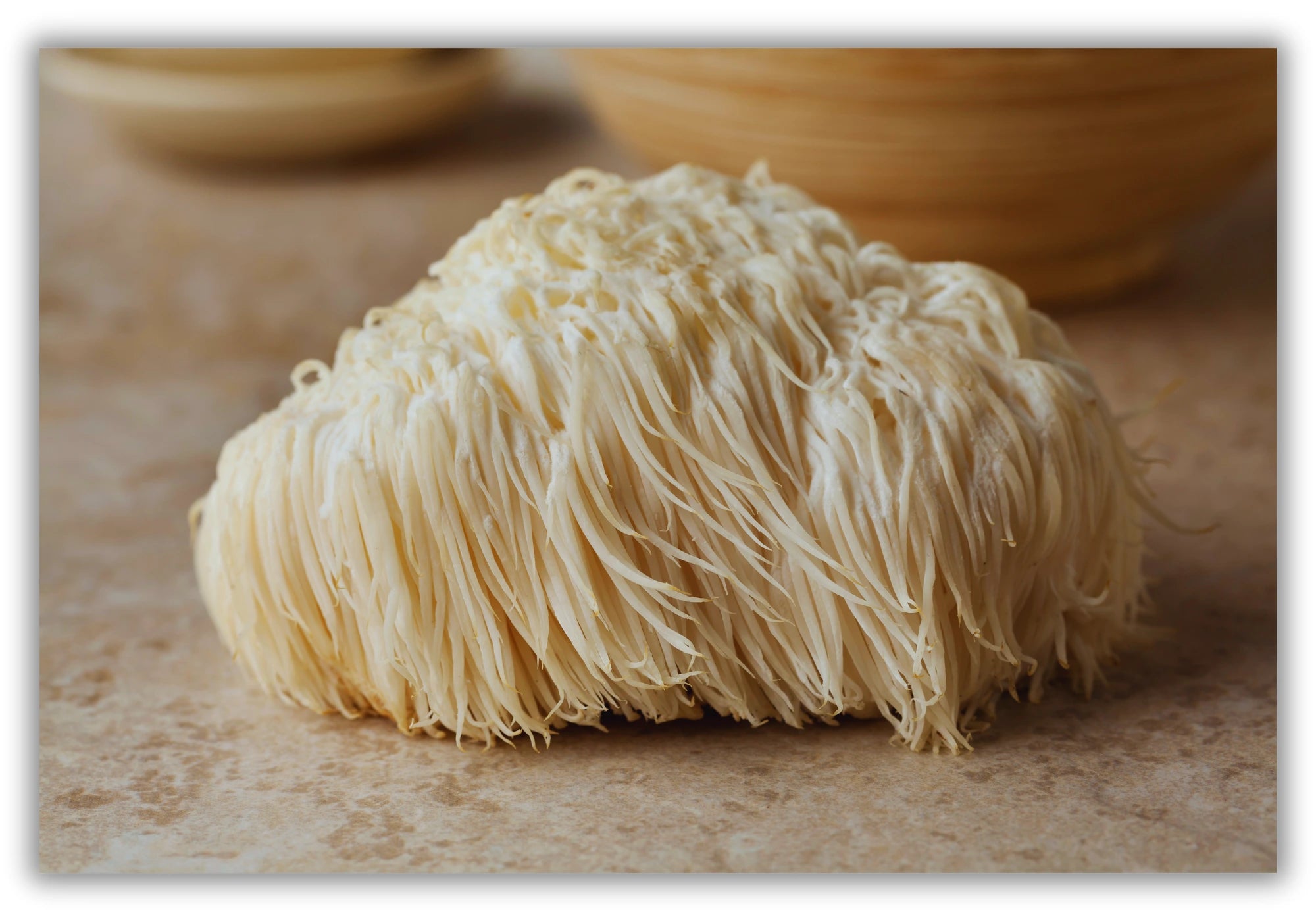
'Pom Pom' Performance
In Mycotherapy, Lion's Mane's multifaceted benefits across the gastrointestinal and nervous systems are truly remarkable. Its traditional roots and contemporary research position it as a key player in holistic well-being.

